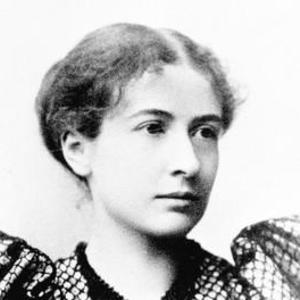
There are thieves in this world. They steal the works of others and publish them without paying. In some cases, they do not even credit the creators.
There is a continuing discussion among creators of how to handle thieves. Some claim they should not be called criminals- thieves- it is unprofessional. They should be treated with dignity and respect. That will stop them from infringing and hopefully get them to pay for using copyrighted material.
Chicago poet Harriet Monroe wrote an ode for the opening event of the 1893 Chicago World Columbian Exposition. She fought the men who ran the exposition to recognize poetry as an art. She fought those same men because they did not want a woman poet creating the opening poem for such a prestigious city event. Harriet Monroe prevailed.
The ode was seventy-eight pages long, a combination of poetry and performance art. Ms. Monroe copyrighted the poem. A thieving reporter from the New York World, a Pulitzer paper, obtained a copy of the poem. He telegraphed it to the paper. It was claimed to be the longest telegraph sent from Chicago.
The New York World, run by a thief named Joseph Pulitzer, published the poem without permission from Harriet Monroe. I always wonder why the reporters and news entities are so proud to get an award named after a thieving miserable bastard who ran the equivalent of a tawdry tabloid. It tells you all you need to know about journalism and journalists
Harriet Monroe sued over the theft of her work. If there was one thing thieving Joseph Pulitzer hated the most, it was writers with lawyers. He threw the legal and political weight of the New York World and his media empire against Harriet Monroe.
Pulitzer believed he could not lose. Pulitzer was wrong. Harriet Monroe won her lawsuit after it went to the United States Supreme Court. The ruling set a precedent for copyright law infringement.
Harriet Monroe was awarded five thousand dollars by the courts. Pulitzer also had to pay her legal fees and court costs. Had Pulitzer or his paper asked permission to publish the poem, it would have only cost them two hundred dollars.
Harriet Monroe is a forgotten hero to creators. She stopped the newspaper thieves with her lawsuit. The ruling in her case protects creators to this day. Monroe is largely forgotten, while the scoundrel, Joseph Pulitzer, is lionized, go figure.
Harriet Monroe used the award and financial help from Chicago’s elite to establish Poetry Magazine, which led to founding the Poetry Foundation. This is what she is known for. The copyright case is treated as a mere footnote of her life.
Harriet Monroe matters. She took on one of the most powerful men in America. She prevailed. Harriet Monroe set the standard for all creators to stop the theft of their work and get paid.
Harriet Monroe is a true Chicago person. Tough, unbendable, and a fighter for what is right.
If the thieves steal your work, be like Harriet Monroe. Go after them tooth and nail. Be a bully and shamer. Creators confuse professional and professionalism. Professionalism is the rules of conduct, ethics, and practices. Professionals get paid.